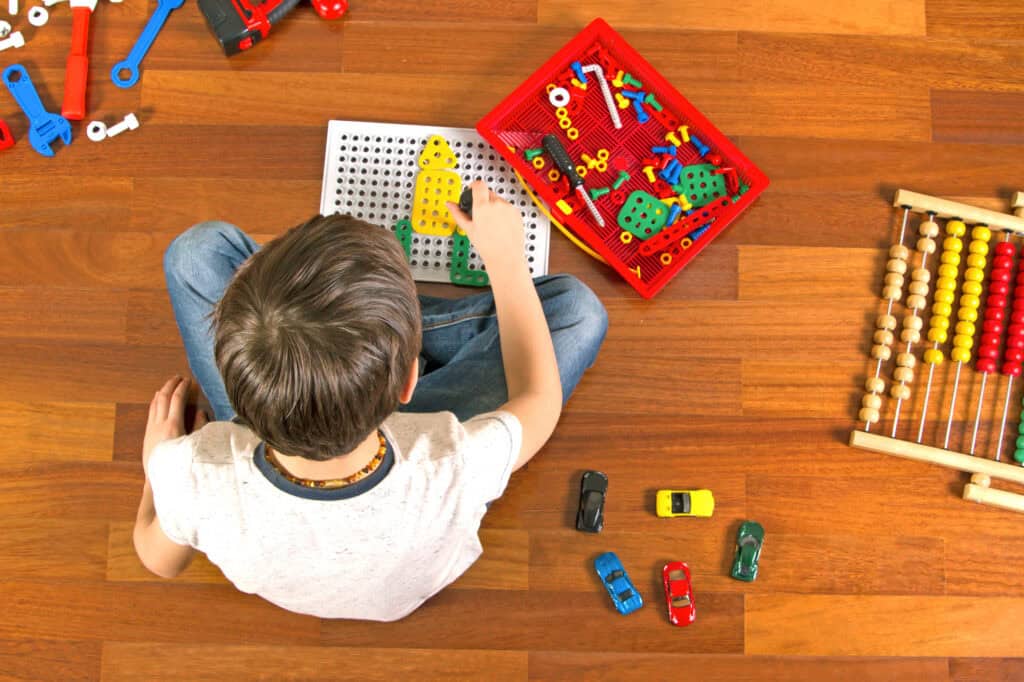Everywhere you look, you’ll see a child holding his parents’ phone or a tablet.
They’re watching cartoons or playing games, calm as sleeping water.
Children are no longer running around tables in restaurants, fidgeting on public transport or in cars, you can even see them sitting on park benches.
Since becoming a grandmother, I’ve been amazed at how much child-rearing has changed, how unacceptable some things are.
However, they were unacceptable even then, simply there was no one to say it, no one cared.
My parents and friends simply told me that the child had to be clean and fed, for everything else I had to deal with myself.
I bought books on child psychology and books for educators.
I used to scream about things, so I stopped, because of my daughter’s eye rolling.
But also because I remembered how much it used to annoy me when my mother did that.
Why shout, impose, punish when my children will become what they want and do what they want anyway, no matter what I do?
When I was a child, I had a “neighbor” who looked after me.

I still remember many of her words.
She let me draw as much as I wanted.
We’d go to the park and feed the ducks.
Every time my mother came to pick me up, my nanny would make a game of it, as if my mom hadn’t left me that morning.
She would always exclaim enthusiastically:
Look who’s come to pick you up!
If I had to describe that experience in one word, it would be – warm.
Years later, and I was already a mother, when I met her, I cried with tenderness.
She was the first to sew a white poncho for me, and she bought me flowers when I was four.
I have so many wonderful memories of her and would like to wish such a nanny on every child.
My mother looked after my daughter until she was three, and then I enrolled her in kindergarten to socialize her.

All three of us suffered.
Especially my mother.
And so we came to Marie.
Marie isn’t going to kindergarten yet, but I didn’t want to talk about it.
Marie, like any child, even when she was only a few months old, reacted to television.
Little children are attracted by colorful images, but I received a lot of criticism.
Indeed, I was constantly told that I shouldn’t let her watch TV, as it’s not good for children’s brains.
I was surprised, because I’d never taken the time to think about what was good for my child’s brain or eyes.
Then Marie had a certain time when she was “honored” by watching cartoons, mostly animated children’s songs and again amazing to me.
There are never too many characters in the frame, cheerful, colorful, no matter how playful, calm compared to cartoons.
The movies my daughter and I watched, there was a general bustle in all of them, chases, fights, bumps.
And then I started paying attention…

If you listen a bit, you’ll hear how you stop them from time to time.
If they’re not obedient, if they don’t do this or that, there’s no cell phone, no games, no cartoons. So…
The cell phone has become nanny 2.0.
And these little kids – not teenagers, but kids who haven’t started school yet – are already being called the YouTube generation.
I’ve already mentioned that I consider the mother’s constant screaming to be absolutely abnormal.
- Don’t run!
- You’ll break your leg!
- Watch your pants!
- Don’t jump around because you’ll sweat.
- If you play in the sand, I’ll have to give you a bath.
Children can’t grow up without their childhood, without jumping, without playing.
So how do you expect me to keep quiet?

Give your children balloons!
I don’t remember seeing a child playing with a balloon in a very long time.
80% of children under the age of three already use YouTube and declare that for many, this is the target group, and many videos are actually hidden advertisements for toys.
A three-year-old knows perfectly well how to use YT, he doesn’t need to know, just as he doesn’t know how to read or write.
An Italian psychologist has stated that children under six understand the world through words and symbols.
With excessive use of cell phones and tablets, they think less, use only their hands to turn something on or change it, and that high technology leads to the most important part of life being denied – childhood.
The same psychologist says that a child under the age of three should not have access to any digital screen.
In this respect, I’ve read in several places that obsolete things stimulate the brain the most.

When I say obsolete things, I mean: playing, singing, walking, baking cakes with mom, etc.
On the whole, the YouTube generation knows how to use cell phones perfectly, even how to surf, but they don’t know how to do the most ordinary things.
Kids don’t know how to tie their shoelaces or button their jackets.
Nobody teaches them how.
Of course, this isn’t a rule, it just suggests that parents aren’t thinking things through when they allow a child to use a cell phone indefinitely.
He is, as I mentioned, an excellent nanny.
But I also have to be honest, today it’s impossible to keep children away from technology.
We simply have to control and limit its use.
One interesting thing:

More and more parents are realizing just how dangerous seemingly innocuous things can be.
The danger of a child misunderstanding something, getting the wrong idea about something, is real.
Do they think that some cartoons brutally distort reality because they show infinitely happy animals?
They may later be shocked to learn that most of these animals, which look happy on screen, actually live on factory farms where they are brutally killed for human consumption.
Finally, research in several countries has shown that only 11% of children aged 4 to 5 know how to tie their shoelaces.
Teach them to tie their shoelaces, brush their teeth, wipe their bottoms…
If your children go to kindergarten, stop taking them to the playroom in the afternoon – they’ve already been with the kids long enough – eight, nine hours – reserve your precious time for them.
You’re irreplaceable in their development.
There’s nothing wrong with being a 2.0 mom, but do it in moderation and with restraint.

Well, hello there!
My name is Jennifer. Besides being an orthodontist, I am a mother to 3 playful boys. In this motherhood journey, I can say I will never know everything. That’s why I always strive to read a lot, and that’s why I started writing about all the smithereens I came across so that you can have everything in one place! Enjoy and stay positive; you’ve got this!

